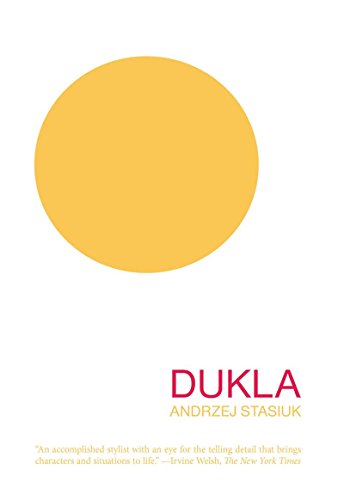
Dukla
Polish Literature
- اطلاعات
- نقد و بررسی
- دیدگاه کاربران
نقد و بررسی

August 29, 2011
Character is plot in this unusual collection (first published in Poland in 1999) from Stasiuk, the author of On the Road to Babadag. Beginning with “Midsummer, Pogórze,” a portrait of rural Polish life, these fragmented stories leave much for the reader to imagine. While Stasiuk may not be the unnamed narrator who shares memories and reveries, he offers few biographical details about this guide, only that he is unworldly, in his late 30s, and trying to “write a book about light.” The title story, more than half the book, reads like a memoir or travel essay, heavy on nostalgia. Told in three parts—with little in the way of traditional plot—this story offers a warm, often poetic portrait of the narrator’s beloved village. In part three, a spiritual search that’s implicit in the earlier sections becomes explicit, with visits to local churches and memories of childhood leading to broader philosophical speculation. Eighteen beautifully written vignettes end the collection, covering the same territory, and prove far more compelling for the reader than the beginning.

October 15, 2011
Dukla is a series of meditations focused on the real Polish resort town of the book's title. The translator's introduction calls it a book about light, about mood and memory and the passage of time, a diary of observation, and a new way of looking at the everyday. In Poland, Stasiuk is regarded as a master of the Polish language; his work is notable for the brilliance of its style and has been compared to Kafka and Genetwhich leads to the inevitable problem with translation: no matter how brilliant the original, the translator must create an entirely new work that can, at best, approximate that brilliance. One gets a sense of Stasiuk's gift here, but the novel is esoteric and difficult to appreciate in English. It ends with 18 short vignettes about people, events, and nature that are relatively accessible, but Stasiuk is a writer's writer; at one point, as he walks the streets of town, he observes, The world is filled with details that provide the beginnings of stories. Dukla seems very much like a series of beginnings.(Reprinted with permission of Booklist, copyright 2011, American Library Association.)




دیدگاه کاربران